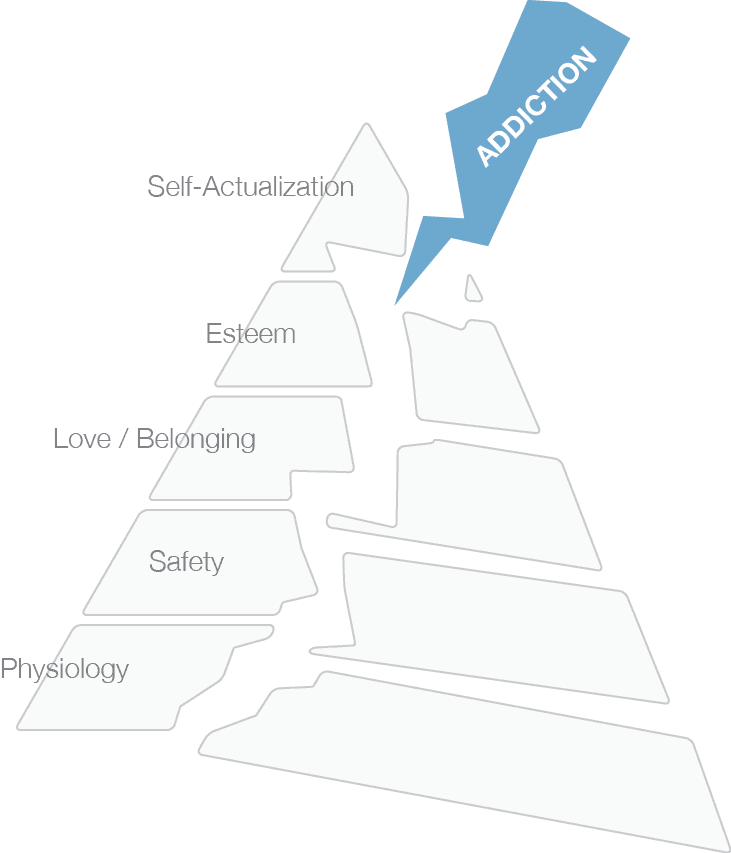What is Addiction?
A short thought experiment to understand the nature of addiction.
There is a lot of confusion about what constitutes addiction. People often ask: Can I be addicted to caffeine or the internet? Is the way that I or my loved one drinks alcoholic? In order to understand addiction a little better and to understand whether you or your loved one might suffer from addiction, complete the following exercise.
List all the things that you think are most important for a healthy, happy human life. There are no wrong answers, so just list whatever comes to mind no matter how concrete or abstract. If you haven’t listed items like “self-respect” or “safety” you might not be thinking broadly enough.
Now consider an attachment that you think may be addictive—it can be to a substance, relationship, or behavior—any attachment that is both powerful and problematic. Write the attachment at the top of the page.
Finally, cross out all the items in your original list that you or your loved one has compromised for the sake of this attachment.
When people in treatment for addiction complete this exercise, they typically cross out every item on their list of human goods. You can tell the degree to which you might be addicted to a substance, behavior, or relationship by the degree to which you sacrifice or compromise the things you consider most valuable in human life.

Using this exercise as a foundation, we can provide a general definition of addiction:
Addiction is a disease of the motivational system whereby a person becomes so attached to a substance, relationship, or behavior that his or her own priorities are compromised for the sake of the addictive attachment. The severity of addiction can be measured by the degree and scope of this compromise. This definition is consistent with the definition of addiction promulgated by the American Society of Addiction Medicine (ASAM).


